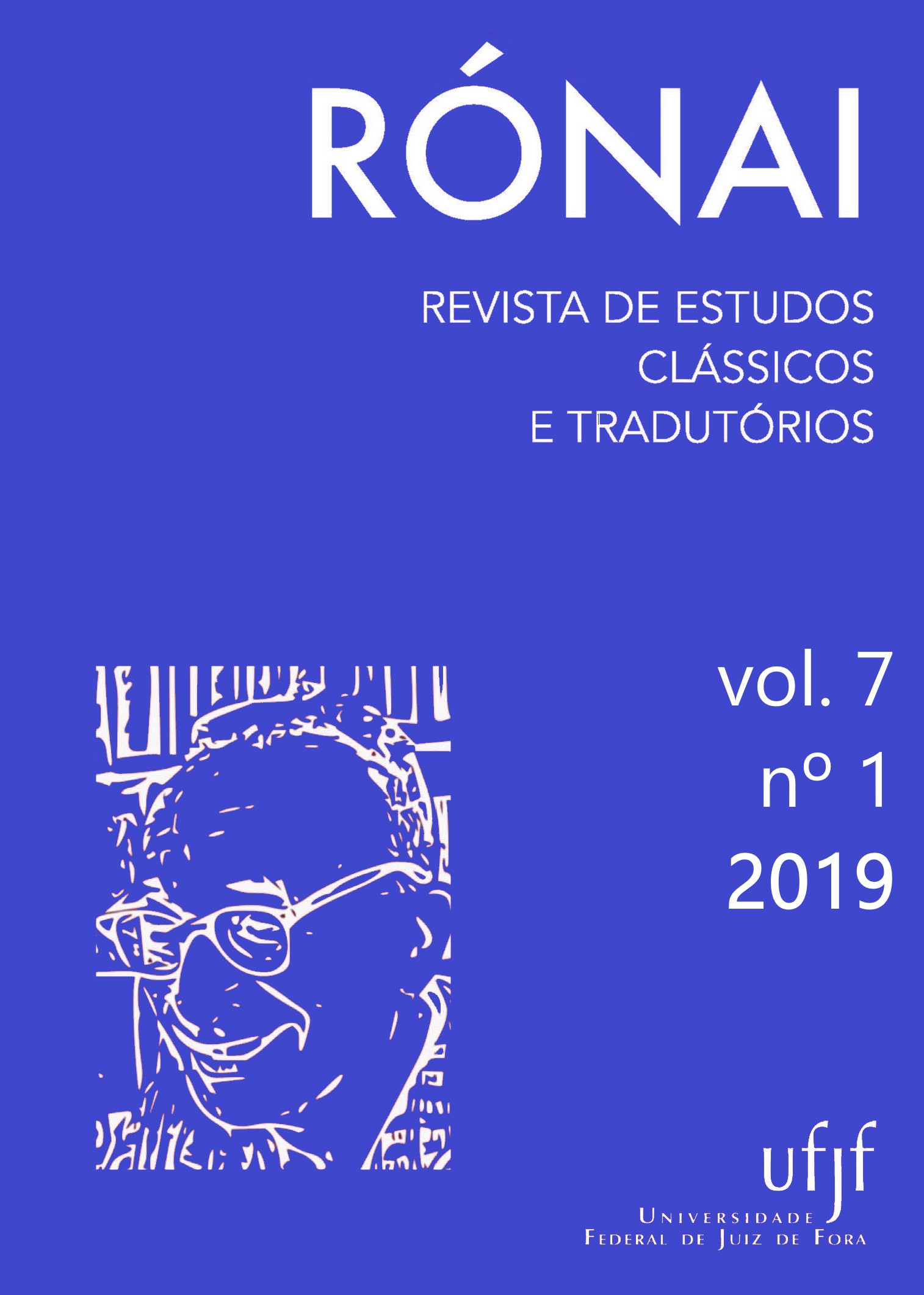Dialetic and tékhnē in Plato’s Cratylus
DOI:
https://doi.org/10.34019/2318-3446.2019.v7.23294Keywords:
Plato, Cratylus, tékhne, dialeticAbstract
In this article, we evaluated the notion of tékhnē in three contexts of the Cratylus, which allows us to identify three nuances associated with the term: 1. as a “know how” intermediated by an instrument (388e-389a); 2. as the possession of a noetic knowledge, in the moment of the etymological analysis of this word (414b-c) and 3. as the art of representing things through their names (428a-440e). Our point is to show these meanings not as something disconnected and fragmentary, but that they are developed within the dialectical movement of this dialog itself.
Downloads
References
BRANDWOOD, Leonard. Word index to Plato. Leeds W. S. Maney and son, 1976.
CASERTANO, Giovanni. Paradigmas da verdade em Platão. Tradução de Maria da Graça Gomes de Pina. São Paulo: Edições Loyola, 2010.
HUSSEY, Edward. Heráclito. Aparecida, SP: Ideias e Letras, 2008. Separata de: LONG, A.A. (Org.). Primórdios da filosofia grega.
LIDDELL, Henry George; SCOTT, Robert. A Greek-English Lexicon. 9. ed. rev. e amp. New York: Oxford University Press, 1996.
MONTENEGRO, Maria Aparecida de Paiva. Linguagem e conhecimento no Crátilo de Platão. In: Kriterion, nº 116. Belo Horizonte, 2007, p. 367-377.
PLATÃO. Crátilo. Diálogos: Teeteto e Crátilo. Trad. C. A. Nunes. Belém: Editora da UFPA, 1988.
SEDLEY, David. Plato`s Cratylus. Cambridge: Cambridge University Press, 2003.
Downloads
Published
How to Cite
Issue
Section
License
Copyright (c) 2019 Daniela Brinati Furtado, Fábio da Silva Fortes

This work is licensed under a Creative Commons Attribution 4.0 International License.
Copyright
The authors of the published contributions agree with the following items:
1. The authors keep the copyright and convey to the journal the right of first publication, the work being licensed under a Creative Commons Attribution License 4.0 International.
2. The authors are allowed and stimulated to publicize and distribute their work online after the publication in the journal, recognizing first publication in this journal.
3. The authors of the approved works authorize the journal to distribute their content, after publication, for reproduction in content indexes, virtual libraries and similars.
For more information about Creative Commons Attribution License 4.0 International, please, go to: https://creativecommons.org/licenses/by/4.0/deed.en
Editorial exemption
The authors of the published contributions are entirely and exclusively responsible for their contents. Its content does not represent an official position of Rónai - Revista de Estudos Clássicos e Tradutórios neither of Faculdade de Letras da Universidade Federal de Juiz de Fora or their partner institutions.



